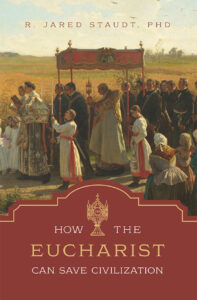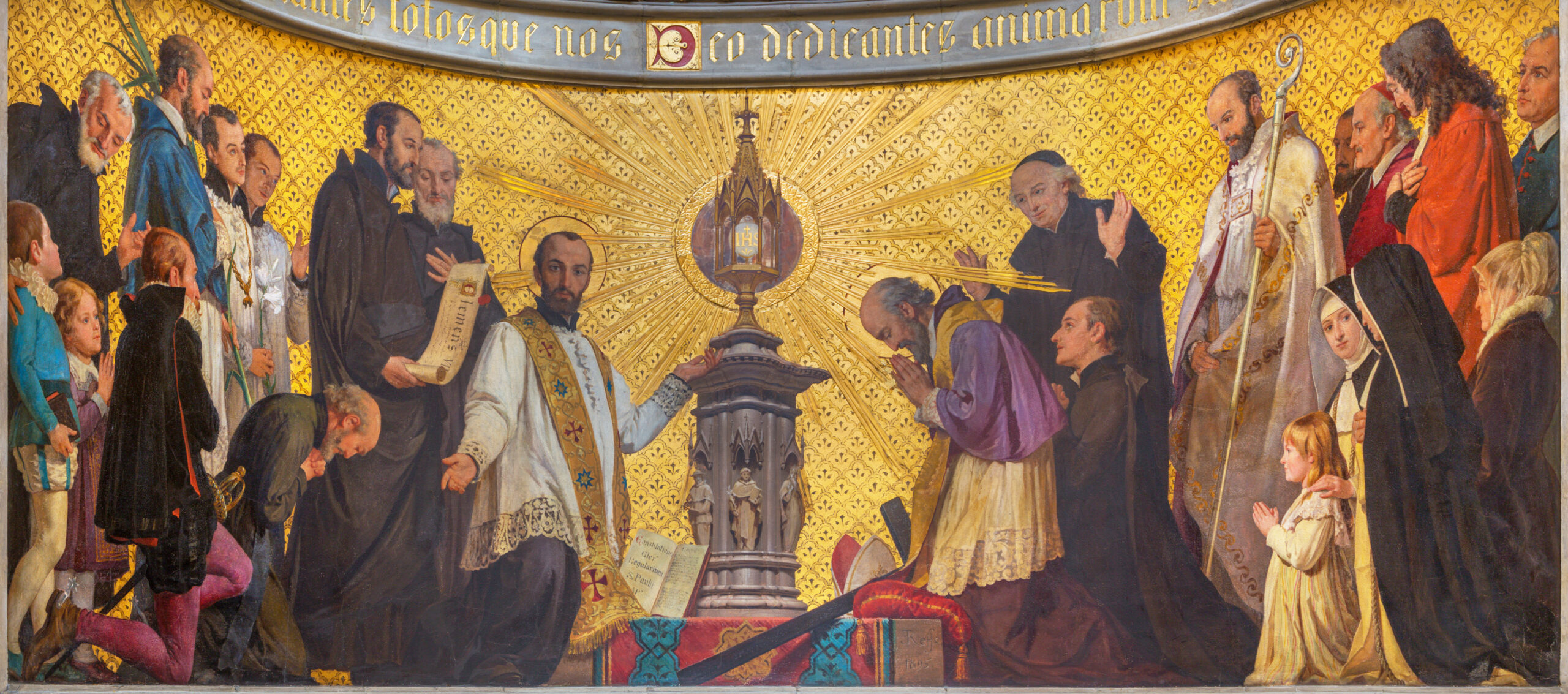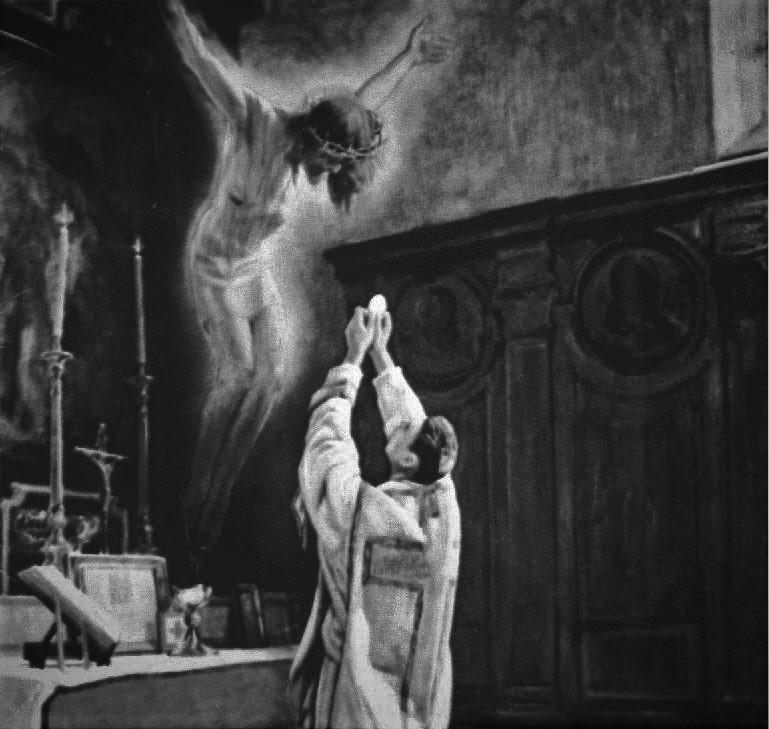Many saints have upheld the benefits of frequent Communion as essential to the pursuit of holiness. Pope Saint Pius X, for instance, championed a more regular reception of Communion, issuing Sacra Tridentina to encourage it in 1905. Even as he preaches the great benefit of frequent Communion, he also reinforces the importance of having the proper disposition: “A right intention consists in this: that he who approaches the Holy Table should do so, not out of routine, or vain glory, or human respect, but that he wish to please God, to be more closely united with Him by charity, and to have recourse to this divine remedy for his weakness and defects.” Pius gives some practical advice on preparation: “Since, however, the Sacraments of the New Law, though they produce their effect ex opere operato, nevertheless, produce a great effect in proportion as the dispositions of the recipient are better, therefore, one should take care that Holy Communion be preceded by careful preparation, and followed by an appropriate thanksgiving, according to each one’s strength, circumstances and duties.”
We can greatly benefit from receiving the Eucharist regularly if we approach Jesus for the right reason and with the right disposition. In addition to this guidance from Saint Pius, there are some other dispositions that help in approaching the Eucharist worthily and well. First, it is important to remember that we attend Mass primarily to honor God and to give Him glory. While there is an obligation to attend Mass each Sunday, we are required to receive Communion only once a year. This weekly duty calls us to stay God-centered rather than self-centered. The Mass is not about us, to make us feel good or provide entertainment. We could approach Mass as a consumer, seeking only what serves one’s own sensibilities and comfort rather than moving out of oneself in receptivity and obedience to God. The Mass is about God and His glory, not our own self-satisfaction.
Second, to eat the supernatural food of the Eucharist, we need a supernatural approach, guided by the theological virtues of faith, hope, and love. With faith, we have the eyes to perceive the spiritual realities of the Mass and to approach them with reverence and devotion. Denying Jesus’s true presence in the Eucharist in an act of disbelief, on the other hand, creates a serious obstacle that prevents one from receiving its grace. Receiving the Eucharist without faith, therefore, constitutes a sin of sacrilege, treating the sacrament as ordinary objects—bread and wine—rather than the true body and blood of the Savior. Hope, expressing our trust in God, also plays a crucial role in receiving Communion, inspiring us to confess our sins and to accept the mercy of God in order to approach the sacrament without fear. Receiving the Eucharist with a penitential attitude, asking forgiveness for venial sin and making reparation for past sins out of love constitutes a true attitude of hope. The Eucharist strengthens our hope in God, giving us confidence that He will draw us to heaven. Charity expresses a Eucharistic attitude more than any other virtue, however, because it enables us to experience union with Jesus, uniting our minds and heart to Him out of love. The Eucharist should inspire us to love God more than ourselves or any created thing, as God gives Himself to us through it, the supreme good we could possess.
This article is taken from a chapter in How the Eucharist Can Save Civilization by R. Jared Staudt, PhD, which is available from TAN Books.








